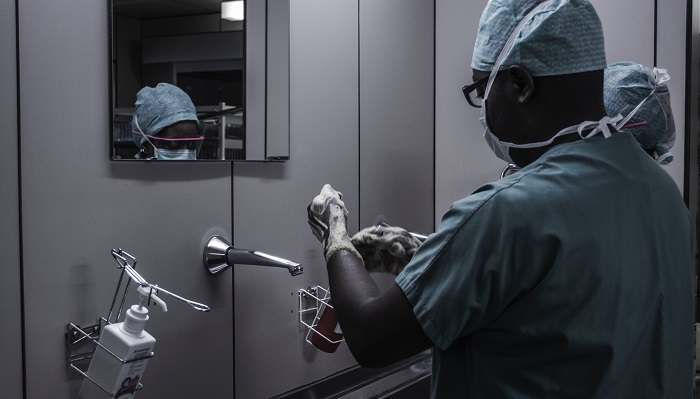Negligence in the medical field has serious consequences for both patients and doctors. Negligence on the part of medical professionals (doctors, nurses, and others in the healthcare industry) can give rise to legal issues and the issue of culpability. In this post, we’ll look at the most important nuances of medical negligence liability and what they mean for patients and doctors. By exploring these nuances, we hope to improve understanding of the medical malpractice legal system and provide insights that will be useful to stakeholders navigating this complicated landscape.
The Standard of Care
In cases involving medical negligence, familiarity with the standard of care is crucial. What constitutes an acceptable degree of competence and expertise for a healthcare provider is typically judged by what an equally qualified and experienced professional would do in a given situation. A personal injury case for negligence may be possible if this threshold is breached.
When it comes to their health, patients must put their trust in their healthcare providers, and the concept of standard care provides the yardstick by which to evaluate their performance. This criterion does not apply universally but rather considers the facts of each individual instance. For instance, a surgeon performing a difficult operation may be held to a different standard of care than a pediatrician treating a child’s illness.
Informed Consent
Medical practice cannot function without informed consent. Before getting a patient’s consent for treatment, healthcare providers will discuss the benefits, dangers, and options with the patient. Claims of medical malpractice may result from inadequate information provision. Patient autonomy is the bedrock of the concept of informed consent. Patients have the right to make educated decisions regarding their treatment, and healthcare practitioners must respect this right.
Patients may claim they were not given a fair chance to express their preferences for treatment if informed consent was not properly obtained. Furthermore, informed consent is an ongoing process that should encompass any adjustments to the treatment plan or newly identified concerns. Keeping patients informed about their medical care requires honesty and openness from all those involved.
Causation
One of the most difficult parts of a medical negligence case is proving causation. Plaintiffs must demonstrate that the healthcare provider’s actions or omissions actually caused harm. This requires providing concrete evidence connecting the medical mistake to the harm sustained by the patient. A key component of any negligence lawsuit is proof of causation.
The patient must show more than just that the healthcare professional was negligent. They also need to prove that their injuries were caused by the deviation. This is what’s known as the “but for” test in the law. If the doctor or nurse hadn’t been careless, the patient wouldn’t be hurt.
When there are several contributing components, determining the cause might be difficult. It is critical for plaintiffs to collect persuasive evidence to support their claims since healthcare practitioners may argue that the patient’s preexisting conditions or other unrelated variables contributed to the harm.
Expert Testimony
Expert witnesses in the medical field are frequently needed in cases of medical negligence to testify as to whether or not the defendant’s behavior departed from the accepted standard of care. This testimony is essential for proving negligence in court.
The foundation of any medical malpractice case is expert witness testimony. Since the standard of care is a specialized and intricate notion, it often requires the participation of experts who can examine the healthcare provider’s actions. These professionals help the court determine if the defendant’s activities were adequate.
The distance between medical expertise and legal standards is narrowed by their testimony. Doctors, nurses, and other medical professionals who are experts in their field can testify as expert witnesses. They offer their professional judgments and assessments based on their expertise.
Statute of Limitations
A plaintiff has a limited amount of time to initiate a claim for medical negligence, as established by each state’s statute of limitations. Because missing this deadline can prevent a patient from receiving compensation for their injuries, it is crucial that they are informed of it.
Statutes of limitations differ from one jurisdiction to another and are designed to facilitate the prompt resolution of legal claims. They are a basic deadline by which claimants must initiate court action. A patient may lose their right to sue if they do not begin legal action within the allotted time.
Understanding the statute of limitations that applies to a certain case is vital, as it defines a legal threshold for when a claim can be presented. Given the complexities involved, it is critical to consult an attorney as soon as possible after a suspicion of medical negligence has arisen.
Damages
Compensation for medical bills, pain and suffering, and lost pay are all forms of damages that can be sought in medical negligence lawsuits. Damages are difficult to calculate and may require a thorough examination of the individual case.
The awarding of damages is crucial in any lawsuit involving medical malpractice. They symbolize the patient’s losses because of the doctor’s carelessness. For example, a brain injury victim has significant losses they are subjected to live with all their life. These losses may have a monetary or intangible monetary value. Medical expenses, missed wages, and other monetary losses are examples of economic damages.
Pain and suffering, emotional discomfort, and a decline in the patient’s quality of life are all examples of non-economic damages. Damages are difficult to calculate since they take into account both short-term and long-term consequences. It may require the experience of financial and medical professionals to arrive at a reasonable and just compensation sum.
Endnote
Liability for medical mistakes is a complex and dynamic field of law. Both patients and medical professionals need to understand these nuances to help victims of medical malpractice get the compensation they deserve.



















